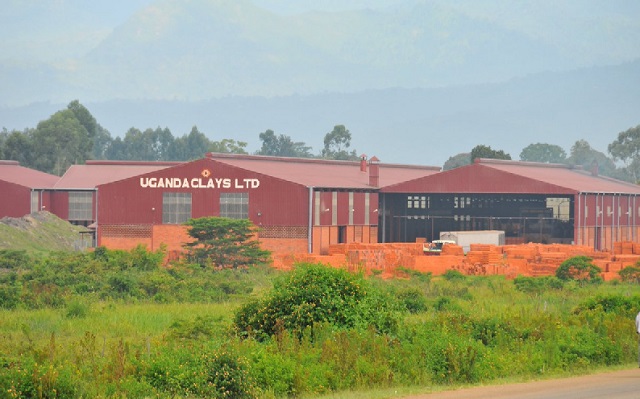
The firm is now eying NSSF savers, banks and Sacco’s to spearhead growth
Kampala, Uganda | ISAAC KHISA | Uganda Clays Ltd is venturing into production of bricks, thanks to the improved technology and the booming construction sector.
The firm’s executives claim the new brick will lower construction costs compared to those produced using local technologies.
“The bricks that we’re bringing to the market are going to compete with those that people have always bought from the local people – where no research has been done or tested to ascertain their qualities,” said UCL’s CEO Reuben Tumwebaze.
Tumwebaze said the new bricks, set to compete with the existing bricks on the market on price as well, will save customers on cement, plastering and to some extent paint.
Currently, the price for bricks on the Ugandan market, majority produced using traditional technologies, goes for an average of Shs 250 to Shs 400 each depending on size and location.
Tumwebaze said re-opening of economy and the government decision to allow contributors access part of their contributions with NSSF has boosted demand for construction materials.
“We are therefore launching a new program where members accessing their mid-term contribution with NSSF will access our products at a 4% discount,” he said while releasing the firm’s financial results for 2021 on April.20.
“We are also launching a hire purchase programme where we’re going to be dealing with Savings and Credit Cooperative Societies, banks and established associations to take our products, pay 30% and clear the balance in one year. I am therefore confident that demand for our products can only grow organically.”
Last year, UCL invested Shs 10.5bn in revamping its two plants – Kajjansi and Kamonkoli – involving installation of new kilns, artificial driers and land expansion as a source of raw material.
This boosted UCL’s production capacity at the Kajjansi plant, doubling to 600,000 tiles per month.
Kamonkoli plant, too, doubled its production capacity to 400,000 tiles per month and is expected to more than double this production volume with the latest extension.
However, UCL’s tiles accounts for 75% of the firm’s product portfolio that include decorative grilles, floor tiles, suspended floor units, walling and partitioning and ventilators.
“The moment Kamonkoli achieves production capacity of 30,000 tiles per day and Kajjansi achieves 85,000 of tiles per day, then, the efficiencies will help us enjoy the economies of scale and so are our customers” Tumwebaze said, adding that Kamonkoli plant is now back to the profitable path.
Positive outlook
Tumwebaze said the firm foresee growth in sales due to the mushrooming construction activities, mid-term access of NSSF savings and the ongoing developments in the oil and gas sector. He said the firm is thus increasing product availability and access to the customers.
On the external market, Mark Rwomushana, head of sales and marketing, said the firm is now looking at growing external market six-fold to at least 3% in 2023.
He said the firm has formalized business agreement with a sales agency in Kisumu Kenya, targeting the Kenyan market, as it seeks for business opportunities in S.Sudan, Burundi and Democratic Republic of Congo.
UCL reported a sharp increase in annual profit for 2021 and has promised to return Shs 1.35 billion to shareholders as dividends subject to the annual general meeting approval.
The clays products manufacturer reported a profit after tax of Shs 5.9billion, representing a 21% growth compared to the previous year amidst coronavirus pandemic citing improved efficiencies in production and a change in the sales model to the use of agents to reach more customers contributed to the profitability.
****
 The Independent Uganda: You get the Truth we Pay the Price
The Independent Uganda: You get the Truth we Pay the Price




Thanks for the good idea in construction